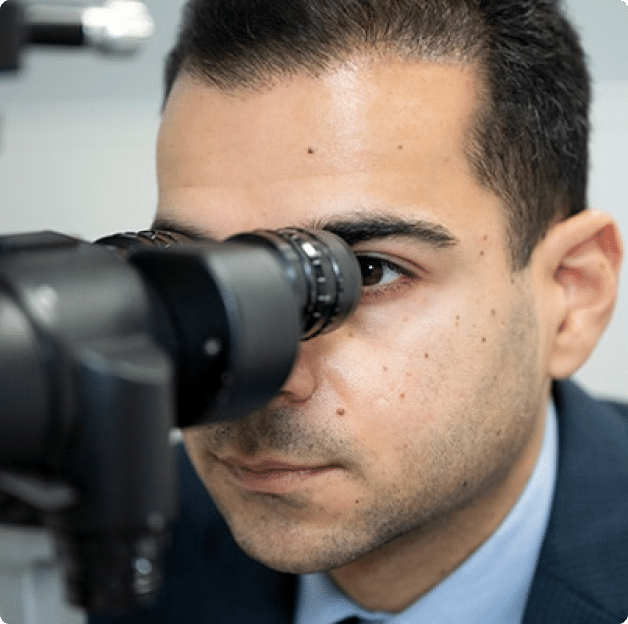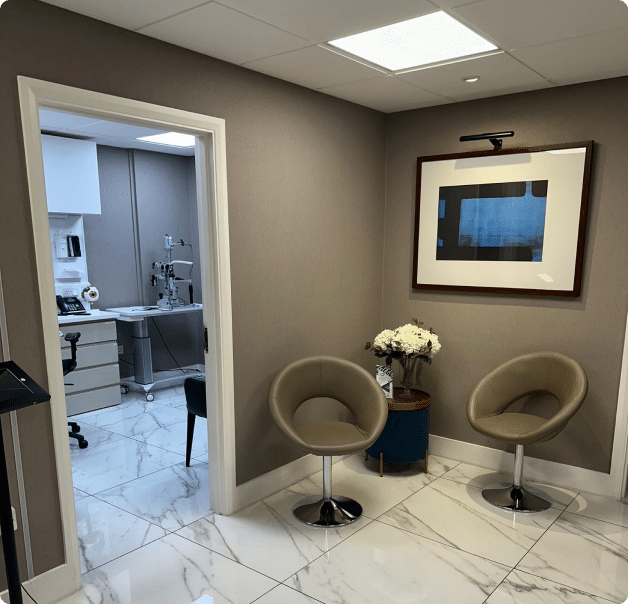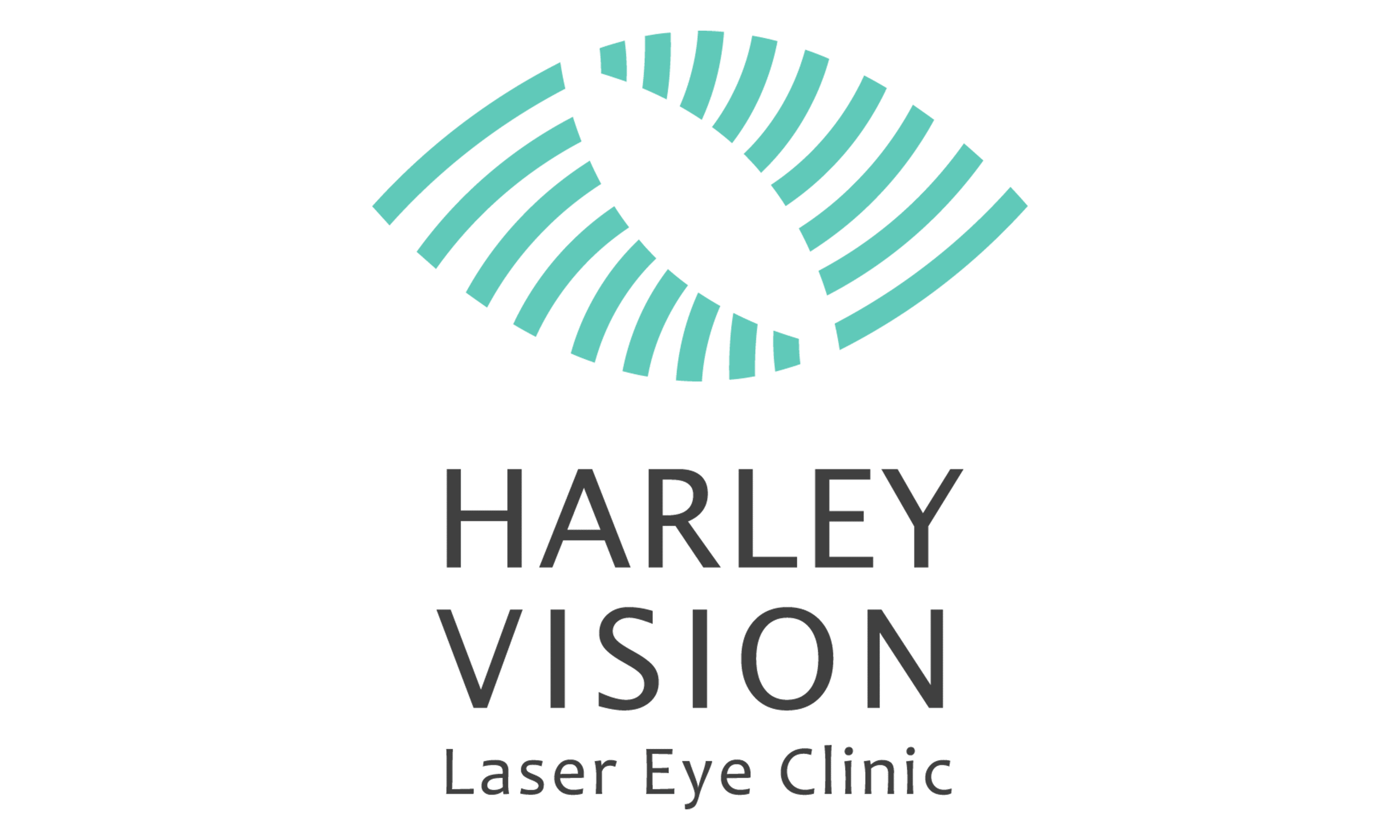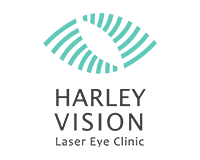Implantable
Collamer Lens
An ICL (Implantable Collamer Lens) is also known as known as a phakic IOL (or phakic intraocular lens), it can be thought of as similar to a soft contact lens but is implanted into the eye to correct your vision for the long term.

Sharp,
Clear Vision

99% Patient
satisfaction

1,000,000
Procedures
worldwide

Excellent night
vision
-
 A removable, upgradable option
A removable, upgradable option
-
 Great for those with thin corneas
Great for those with thin corneas
-
 Does not induce dry eye syndrome
Does not induce dry eye syndrome
-
 In harmony with your natural eyes
In harmony with your natural eyes
Harley Vision
Mr Mukhtar Bizrah
Harley Vision
Mr Mukhtar Bizrah
- Flexibility for the Future
- No Dry Eye Syndrome
- Removability
- A Quick Procedure & Recovery
Flexibility for the Future
While EVO Visian ICL can permanently correct your vision, the lens can be removed to keep pace with advancing technology and your future needs.
No Dry Eye Syndrome
By not removing and reshaping the corneal tissue, the Visian ICL procedure does not induce dry eye syndrome.
Removability
In the event of a major prescription change or the availability of new vision correction options, EVO Visian ICL is completely removable.
A Quick Procedure & Recovery
20–30 minute procedure or less and most people are able to resume daily activities in just a few days with clearer vision.
Flexibility for the Future
While EVO Visian ICL can permanently correct your vision, the lens can be removed to keep pace with advancing technology and your future needs.
No Dry Eye Syndrome
While EVO Visian ICL can permanently correct your vision, the lens can be removed to keep pace with advancing technology and your future needs.
Removability
While EVO Visian ICL can permanently correct your vision, the lens can be removed to keep pace with advancing technology and your future needs.
A Quick Procedure & Recovery
While EVO Visian ICL can permanently correct your vision, the lens can be removed to keep pace with advancing technology and your future needs.
10 reasons for Harley vision
01
Multi-award winning, multi-fellowship trained surgeon
02
At our clinic, you will be seen by a consultant from the start, not the day of surgery
03
Not tied to any company, we choose the best laser or implants for your eyes
04
State-of-the-art technology, lasers and multifocal lens implants
05
Our surgeons offer laser and lens based refractive surgeries, not pressuring you to a specific treatment
06
Honest ethical care: We do not falsely promise 20/20 vision
07
Utilising AI for best possible care
08
Believers in education, running ophthalmology courses attended from various continents
09
Believers in evidence-based care, our surgeons have numerous research studies
10
Believers in vision for all, donating …
Dr. Mukhtar Bizrah
Mukhtar Bizrah is the Clinical Director of Harley Vision. He is a consultant refractive, cornea and cataract surgeon and unit training lead at the Western eye hospital, Imperial College Healthcare NHS Trust.
Mr Bizrah is multi-fellowship trained (UK & Canada) in advanced refractive, cataract and cornea surgery. He is one of the few ophthalmic surgeons in the world who is board certified in the UK, Canada and Europe:
- Fellow of the Royal College of Ophthalmologists (FRCOphth), UK
- Fellow of the Royal College of Physicians and Surgeons of Canada (FRCSC), Canada
- Fellow of the European Board of Ophthalmology (FEBO), Europe
- Certificate in Laser & Refractive surgery (CertLRS), Royal College of Ophthalmologists, UK

- Implantable Contact lens Suitability Criteria
- Benefits of Implantable Contact Lens
- Implantable Contact Lens (ICL) Steps

Implantable Contact lens Suitability Criteria
Following are some major factors that decide a patient’s eligibility for ICL surgery-
ICL surgery is suggested when the refractive error stays within a range from -0.5D to -20D in Myopia and up to -3D in astigmatism. Patients with age between 21-45 years are ideal candidates for ICL surgery as approved by the FDA (American Food and Drug Administration). However, the type of Implantable Collamer Lens suitable further depends on the degree of Myopia or hyperopia, or astigmatism patients have prior to ICL surgery.
Unlike LASIK surgery, Patients with a thin cornea, corneal irregularities (or keratoconus) or even a history of unsuccessful Refractive surgery in the past are also eligible for ICL surgery. But pregnant and lactating females are not eligible as hormonal changes during pregnancy and lactation can cause changes to corneal curvature and its thickness thereby affecting the success rate of ICL surgery in the first place.
Visit our London facility for a one-to-one consultation with an expert ophthalmologist.

Benefits of Implantable Contact Lens
Implantable Contact Lens procedure is commonly followed to treat different kinds of refractive errors. That’s why ICL surgery is highly recommended for patients who are not fit for Lasik due to large pupils, thin/ irregular cornea or have severe dry eyes. Implantable Contact Lens is made up of Collamer, purified collagen with a very soft and flexible texture. Thus, they are highly biocompatible and prone to any eye infection. The Collamer material is the main reason why ICL lenses are also called Implantable Collamer Lens. However, that’s not the only benefit. There are more to it.
ICL surgery takes less than 30 minutes with topical anesthesia thus offers a very minimal discomfort. You can see the improvement in your vision on the same day of ICL surgery. However, expect a major improvement within a week.
Implantable Contact Lens are an excellent option to minimise the risk of halos and glare effects caused by other lenses. In fact, your night vision may improve because of the UV blockers used inside the lens. Even on the brighter side, the Implantable Collamer Lens can be easily removed in lieu of any better alternative in the future that you may like to opt for either in London or anywhere in the world.
In this regard, you can visit our London eye clinic to discuss more your eligibility criteria.

Implantable Contact Lens (ICL) Steps
These are some commonly followed steps for ICL Surgery everywhere-
You will be asked to lie down on your back and will be administered topical or local anesthesia to numb your eye before the ICL surgery. Doctors clean your eyes and the area around them with a disinfectant. They may also give an injection to prevent the movement of the eyes while inserting the Implantable Collamer Lens.
Through a tiny incision, doctors will insert the Implantable Contact Lens into your eye. Being an extremely thin lens, it is first folded during insertion and then gets unfolded inside. After successfully inserting the Implantable Collamer Lens, doctors will stitch the operated part, and will apply some antibiotic drops and ointments to your eye before covering it with an eye patch. You will be under observation for the next 1-2 hours post-surgery to closely monitor your intraocular pressure.
After post-op care, you will be discharged on the same day. Doctors will prescribe you some medications with taper doses. You will be advised for periodic follow-ups for the next three months until everything is set back to normal. At our London facility, we follow best practices in ICL surgery to offer you world-class treatment.

Implantable Contact lens Suitability Criteria
Following are some major factors that decide a patient’s eligibility for ICL surgery-
ICL surgery is suggested when the refractive error stays within a range from -0.5D to -20D in Myopia and up to -3D in astigmatism. Patients with age between 21-45 years are ideal candidates for ICL surgery as approved by the FDA (American Food and Drug Administration). However, the type of Implantable Collamer Lens suitable further depends on the degree of Myopia or hyperopia, or astigmatism patients have prior to ICL surgery.
Unlike LASIK surgery, Patients with a thin cornea, corneal irregularities (or keratoconus) or even a history of unsuccessful Refractive surgery in the past are also eligible for ICL surgery. But pregnant and lactating females are not eligible as hormonal changes during pregnancy and lactation can cause changes to corneal curvature and its thickness thereby affecting the success rate of ICL surgery in the first place.
Visit our London facility for a one-to-one consultation with an expert ophthalmologist.

Benefits of Implantable Contact Lens
Implantable Contact Lens procedure is commonly followed to treat different kinds of refractive errors. That’s why ICL surgery is highly recommended for patients who are not fit for Lasik due to large pupils, thin/ irregular cornea or have severe dry eyes. Implantable Contact Lens is made up of Collamer, purified collagen with a very soft and flexible texture. Thus, they are highly biocompatible and prone to any eye infection. The Collamer material is the main reason why ICL lenses are also called Implantable Collamer Lens. However, that’s not the only benefit. There are more to it.
ICL surgery takes less than 30 minutes with topical anesthesia thus offers a very minimal discomfort. You can see the improvement in your vision on the same day of ICL surgery. However, expect a major improvement within a week.
Implantable Contact Lens are an excellent option to minimise the risk of halos and glare effects caused by other lenses. In fact, your night vision may improve because of the UV blockers used inside the lens. Even on the brighter side, the Implantable Collamer Lens can be easily removed in lieu of any better alternative in the future that you may like to opt for either in London or anywhere in the world.
In this regard, you can visit our London eye clinic to discuss more your eligibility criteria.

Implantable Contact Lens (ICL) Steps
These are some commonly followed steps for ICL Surgery everywhere-
You will be asked to lie down on your back and will be administered topical or local anesthesia to numb your eye before the ICL surgery. Doctors clean your eyes and the area around them with a disinfectant. They may also give an injection to prevent the movement of the eyes while inserting the Implantable Collamer Lens.
Through a tiny incision, doctors will insert the Implantable Contact Lens into your eye. Being an extremely thin lens, it is first folded during insertion and then gets unfolded inside. After successfully inserting the Implantable Collamer Lens, doctors will stitch the operated part, and will apply some antibiotic drops and ointments to your eye before covering it with an eye patch. You will be under observation for the next 1-2 hours post-surgery to closely monitor your intraocular pressure.
After post-op care, you will be discharged on the same day. Doctors will prescribe you some medications with taper doses. You will be advised for periodic follow-ups for the next three months until everything is set back to normal. At our London facility, we follow best practices in ICL surgery to offer you world-class treatment.
Frequent asked questions (FAQs)
ICL surgery does not involve removing any cornea tissue from the eye, unlike laser refractive surgery. ICL surgery simply involves making small keyhole incisions and inserting a micro-thin lens implant into the eye. This means that ICL surgery is reversible by removing the ICL. ICL surgery can have a wider treatment range (e.g. treating up to -20 dioptres of myopia (short-sightedness). In fact, there is emerging evidence that it may be a better option than laser refractive surgery for individuals with significant levels of short-sightedness. ICL can also correct astigmatism and long-sightedness (hyperopia).
ICL surgery corrects short-sightedness (myopia), far-sightedness (hyperopia) and astigmatism, giving you excellent clarity of vision without spectacles or contact lens.
In the hands of an experienced surgeon, the operation takes 5-10 minutes. The patient can go home immediately after routine surgery, and vision usually improves significantly within a few days.
Yes, at the Harley Vision, ICL surgery can be performed on both eyes on the same day.
ICL surgery has a good safety profile, and can transform quality of life. The most common complications are over or under-correction, whereby an individual ends being slightly more short or long-sighted than intended. This is correctable by replacement of the ICL. Risk of severe loss of vision due to complications such as infection or retinal detachment are rare, and the majority of patients are very happy with surgical outcomes.
You will meet your surgeon, Mr Mukhtar Bizrah, who will discuss the options of correcting your vision and perform your eye surgery. At the Harley Vision, you will not meet your surgeon for the first time on the day of surgery!
ICL surgery should be a painless procedure. Some patients feel discomfort during the surgery. In that case, local anaesthetic is topped up to make the ICL surgery pain-free.
ICL lenses are made up of highly biocompatible collamer. This is similar to the collagen found in your natural cornea. ICL implants are designed to last for 100 years.
As the Implantable Collamer Lens (ICL) gets implanted in inside the eye, you will need post-operative follow up to make sure you are recovering well and there are no complications (e.g. raised eye pressure). An eye shield will also be provided to protect eyes accidental rubbing.
Yes, even after a successful ICL surgery at our facility in London, you may still need reading glasses for your presbyopia or for improving your near vision after the age of 45 years or so.
There is nothing stopping you from driving with 24-48 hours after ICL surgery if your vision is within legal limits for driving. However, we advise waiting for a few days until your brain has adjusted to your new excellent vision.
At Harley Vision, you receive quality treatment under highly experienced ophthalmologists of London who use State-of-the-Art diagnostic devices to offer accurate and comprehensive treatment. Our surgical team is highly experienced in ICL surgery. You will be seen by an experienced surgeon at your clinic visit before the surgery, and soon after the surgery.
At Harley Vision, you will have a comprehensive assessment, including state-of-the-art eye scans, to determine your eligibility for ICL surgery.
Your experienced surgeon will discuss your suitability for ICL surgery based on your eye assessment and visual requirements.
Minimum eligibility criteria for ICL Surgery-
- Age: 18 years or over
- A stable eye power (prescription) for the last one year
- Eye power:
- Myopia of -3 to -20 diopters*
- Cylindrical (astigmatism) power: Up to 4 diopters
- Hyperopia of up to +10 dioptres
- Non-diabetic (Or under control)
- Non-pregnant or lactating mothers
*Even if your myopia level is more than -20D, an ICL can still be helpful to reduce your level of myopia.
To discuss more your eligibility criteria for ICL Surgery, please visit our London facility today.
Useful Links
Locations
Harley Vision,
Harley Vision,
Harley Vision,
Harley Vision,
Contact Us
Lines open: Mon to Sun 9am – 9pm
Out of hours service available for urgent cases
© 2022 Harley Vision, All Rights Reserved.
Harley Vision,
Harley Vision, Imperial Western Eye Hospital,
Harley Vision, King Edwards Hospital,
Harley Vision,
Harley Vision, St John & St Elizabeth Hospital
Harley Vision, Tunbridge wells eye centre, surgery in The Sight Centre,
Harley Vision, The McIndoe Centre,
Harley Vision, Spire Gatwick Park Hospital,
Lines open: Mon to Sun 9am – 9pm
Out of hours service available for urgent cases
© 2023 Harley Vision, All Rights Reserved.
Harley Vision,
Imperial College Private, Charing Cross Hospital, Fulham Palace Road, London W6 8RF


